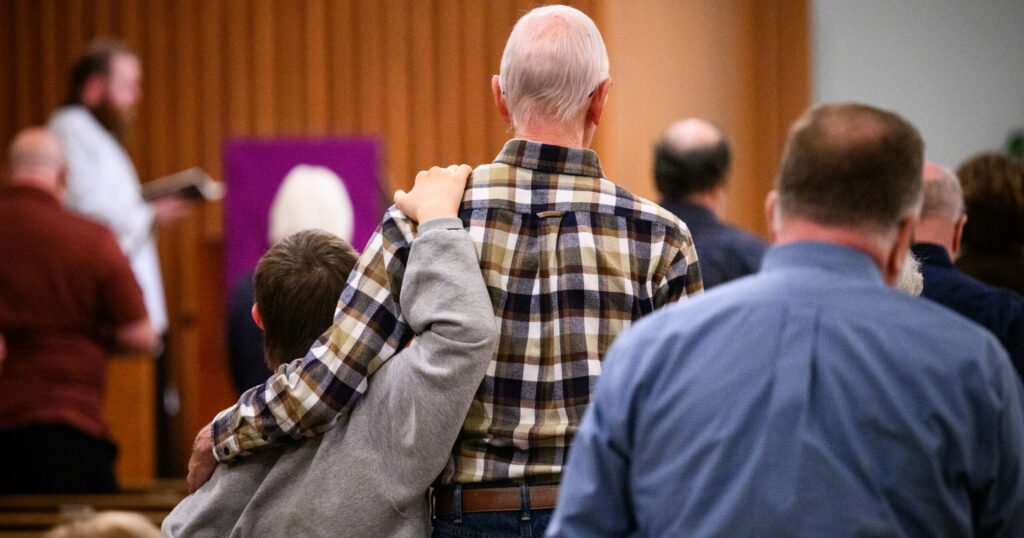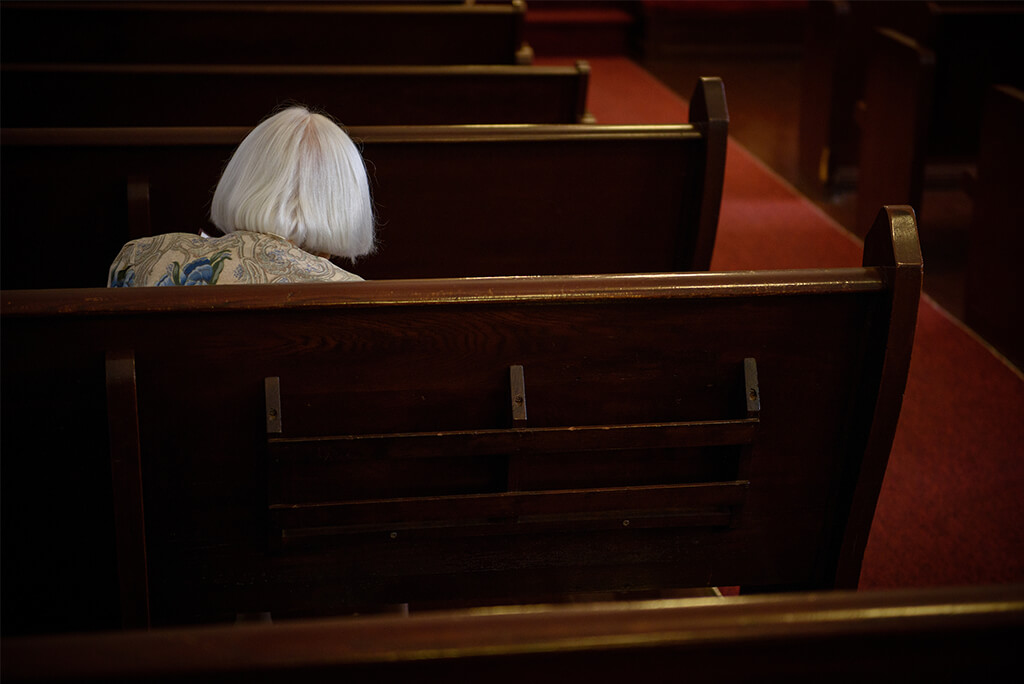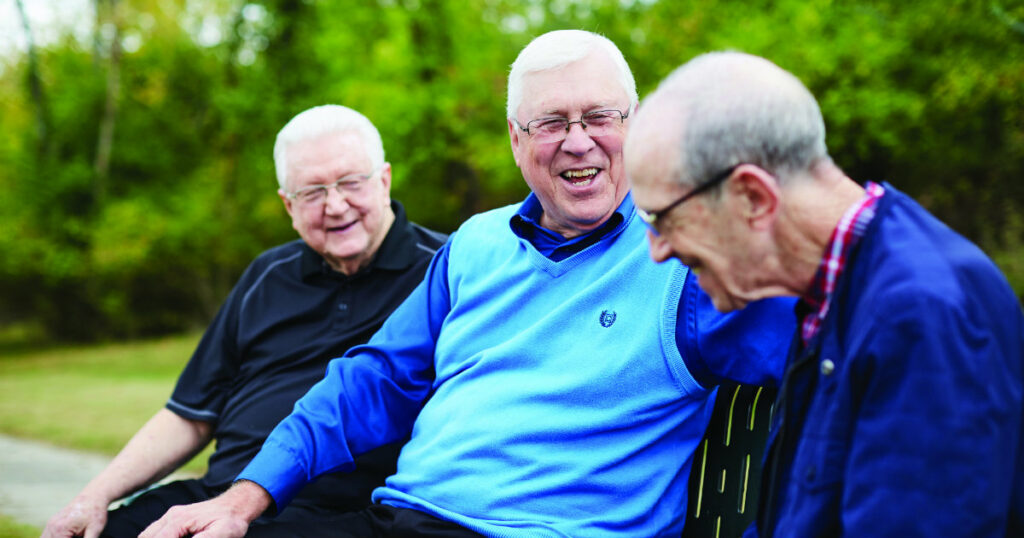By Joel Biermann
Many of us have fond memories of small-town life: summer festivals, unlocked doors, school pageants, common friends, heartfelt patriotism and a uniform morality. In years gone by, even those living in urban areas typically enjoyed the ordinary delights of life shared in tight-knit neighborhoods. Today, however, experiences like these are increasingly relegated to memories and nostalgia. In the 21st century, for a host of reasons, such communities are becoming quite uncommon.
While the word “community” is often associated with official municipal structures designed to organize and enhance civil life, the word is better understood as an important and specific sociological concept. Communities are not merely the result of shared ZIP codes, school districts or legislative decisions. They are much more than administrative political units; they are more than a synonym for “village” or “town.” “Community” is the name we give to the complex network of interrelationships between individuals that bind them to one another in important ways as they live their lives together.
Before we can think about communities that confess, we need to be clear about what we mean by these terms. “Confession” has been fully defined elsewhere in this issue as the way that God’s people faithfully declare with their words and their lives the truth they have received from God. But to understand how to be part of communities that confess, we also need to understand what a “community” is, and how a healthy one forms and is held together.
Considered in a rich, sociological way, healthy and enduring communities always have three essential characteristics:
1. Every community has a creed — a way of understanding the meaning and aim of life, and the things that are important to live life well.
2. A community has a shared catalog of important narratives or stories that are told and retold and cherished with each telling, and that teach and reinforce the creed.
3. A community has shared common practices, which help to bind its members together in their shared life. These practices take on many forms — intentional rites and rituals, organized games and festivals, and even the routine patterns of ordinary social interaction.
Christians can learn two important things from a careful consideration of these core aspects of healthy communities. First, it should be immediately apparent that churches, and especially the local congregation, meet all of these criteria. In fact, there are few human institutions that excel the church in any of these three areas. We Christians confess three common creeds. We have a wealth of shared narratives collected in the pages of the Bible and volumes more added through two millennia of history. And we have a host of shared practices like liturgical worship, congregational gatherings and rituals for milestone life events like birth, marriage and death. Our congregations exemplify the core aspects of a true community.
Secondly, it becomes clear that the divisiveness, vitriol and incivility that characterize our present culture are virtually inevitable given the widespread pluralism of the world around us. Our society at large is in the process of losing all of the elements that make for real community. Our political world cannot help but be contentious and strident when those who inhabit it are in such sharp disagreement about the essential meaning, purpose and moral directives of human life.
It will be difficult for someone who denies God’s existence, believes that the point of life is to be happy, and holds that the basic moral code is to live and let live to find any common ground with someone who believes that life’s purpose is faithfully to follow in the way of Christ while awaiting His return in glory and that the moral code for all people is explicitly expressed in the Ten Commandments. There are many complex reasons behind the fracturing of our present public life — but it is enough to realize that the very building blocks of community have been banished from our common life by staunch cultural and spiritual commitments to ideas and principles that not only reject God’s truth, but also undermine civic culture and politics.
This means that Christian congregations must play an ever-increasing role in the daily lives of people. Not only do churches deliver God’s grace through preaching and the Sacraments, making sinners right with God, but they simultaneously serve as one of the few remaining communities that can anchor, guide and enrich our lives in this world. Recognizing this, Christians should promote the communal aspect of our lives in Christ. We never follow Christ in isolation. We are part of a community with important responsibilities to one another (Col. 3:12–17; 1 Thess. 5:12–23).
Christians are right to emphasize the centrality of the church’s work of Word and Sacrament by which it extends God’s righteousness through Christ; but we should also be aware of the significant role the church plays in this present world as it serves as a robust community. Both aspects of the church’s reality must be core to the witness that Christians offer to the world around them.
Witnessing is essentially a synonym for confessing. When we confess God’s truth, we provide a faithful witness to all who hear us and see us. This witness is not limited to the times we open our mouths and talk about spiritual things or to the official doctrinal or moral statements we publish or post. Our witness is manifest in the way that we Christians live our lives. We worship with one another, celebrating God’s good and eternal gifts. But even after the service’s Benediction, we continue to live our lives together. We encourage and exhort one another by example and by words. We spur one another on in our mutual commitment to God’s guidance for the way we operate in our marriages, raise our children, work in our vocations, use our finances for the good of those around us, season our words with encouragement, extend our resources for the benefit of those in need, and go through each day with a buoyant confidence in God’s provision and certain hope for the full redemption and restoration of His creation. When we Christians live together like this, and hold one another accountable to this way of life, we provide a bright witness to the world (John 13:34–35; Rom. 12). Together as the community of the church, we confess God’s truth to the world — a world that desperately needs the witness of this confession and this community.
There should never be a competition or disjunction between the witness of our gracious Christian lives and the words about Jesus and His Gospel that come from our lips. Neither takes precedence over the other. Faithful confession is always action coupled with proclamation. Both are essential aspects of faithful Christian confession, and both will be routinely present in the lives of God’s people. Congregations that take their work as a community seriously will be bright witnesses to the world around them — including to the broken and languishing communities in which they live, serve and proclaim.

This article originally appeared in the October 2024 issue of The Lutheran Witness.






From a nostalgic angle, I grew up in a Norman Rockwell setting for the first decade of my life, in a small village, on the north shore of Long Island. It was a tiny incorporated hamlet with three churches, a Catholic Church and school, an Episcopalian church, and a Presbyterian church. It had a delightful Main Street which ran straight down to a well kept town park with a gazebo, and a harbor boardwalk. There were parked yachts, and fishing boats, pleasure crafts, and friendly people. Seagulls flew overhead continually, their cries heard a mile away. The Catholic Church at the end of town peeled the bells during the day. You might say, we had a sense of community, but the underside was the presence of the lost, the village drunk, the unfaithful spouse, the families in crisis, minor criminality. The local newspaper kept a record. In some ways, the old days were not so good. There was yet the dark side in the shadows. All communities, even in the old days, were similar to ours in this respect. The community of believers are found mixed within the greater community, but are called to be the witnesses for Christ in a broken world. In many respects, we can’t be surprised. This is what Jesus was taking about when He said we must faithfully “go and make disciples,” and He meant starting in our own communities. Soli Deo Gloria